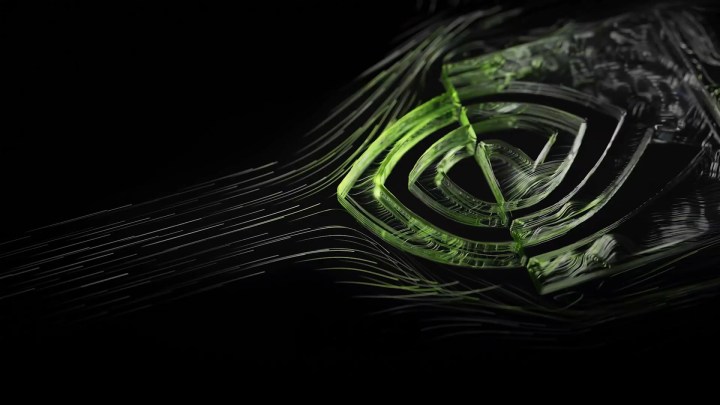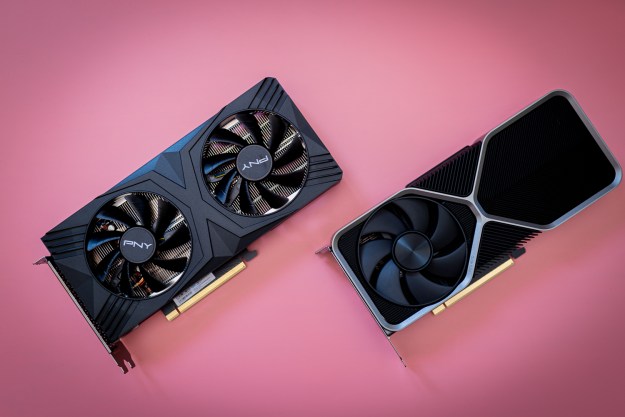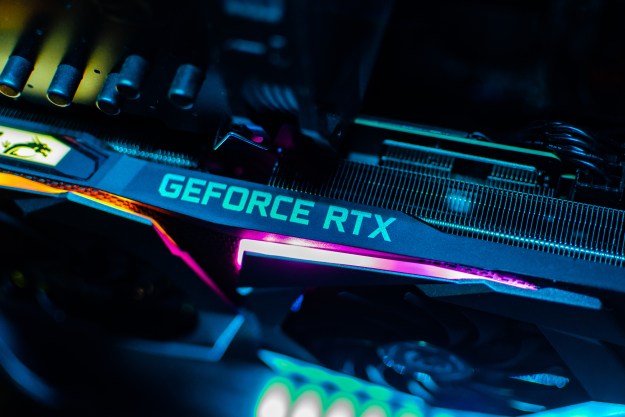Jensen Huang, the CEO of Nvidia, spoke about the recent controversy regarding Nvidia and EVGA. As a reminder, EVGA has made a grand exit from the GPU market, citing Nvidia’s treatment of it as the reason.
According to Huang, the situation was much less dire than it initially seemed, and Nvidia tried to shield its partners from the uncertainties of the current market.

Nvidia has had a turbulent week or so. First, EVGA announced that it would stop making GPUs, and reports say that Nvidia was the cause. Next, the RTX 40-Series was announced, and the pricing of these GPUs left much to be desired. Lastly, Jensen Huang himself confirmed that GPU prices would not drop lower anymore. Now, Nvidia CEO Jensen Huang has responded to the EVGA controversies in a subtle, conciliatory way.
As reported by Windows Central, Huang spoke to the press and talked about both the EVGA issue and the export restrictions made by the United States government. Despite the difficulties, Huang seems optimistic that Nvidia has a good quarter ahead and that it will come out on top.
Huang confirmed that it was EVGA’s decision to part ways with Nvidia, but the way he put it, it seems like that was the plan for quite some time.
Referring to EVGA CEO Andrew Han, Huang said, “Andrew wanted to wind down the business and he’s wanted to do that for a couple of years. Andrew and EVGA are great partners, and I’m sad to see them leave the market, but you know, he’s got other plans that he’s been thinking about for several years. And so, that’s about it.”
Huang then went on to say that “the market has a lot of great players,” so it will continue to be served well even after EVGA leaves. EVGA’s complaints about Nvidia cover things such as being out of the loop on architectural developments and pricing, and Huang addressed these issues as well, by saying that Nvidia was trying to shield its add-in board (AIB) partners from the current market situation. This includes price increases and the difficulty of procuring components given the various supply chain problems.
During the pandemic, the lead times to placing a purchase order on a wafer went up drastically; from 16 weeks to a year and a half. At the same time, the demand for new GPUs rose dramatically. As a result, Nvidia ordered a lot of inventory in advance, but now, the market has slowed down. However, Nvidia didn’t burden its AIBs with the cost of the extra inventory it now has laying around.
Jensen Huang said: “We ordered the components no matter what, so our AIBs are agile. And we carried the vast majority of the inventory when the market was really hot. Our selling price was all exactly the same, never moved $1. Our component costs kept going up, but we absorbed all of the increases. And we passed $0 on to the market.”

Nvidia’s CEO also elaborated on the steps the company took to retain its position and its earnings after the market demand for GPUs dropped: “The combination of the commitments that we made, which led [Nvidia] to write down about a billion dollars worth of inventory. And then secondarily, we put a few hundred million dollars into marketing programs to help the channel reset its price. I think between these two actions that we took a few months ago, we should be in a good spot in Q4 as Ada ramps hard.”
Huang also seems undeterred by the recent trade restrictions that the U.S. government has instated in regard to GPU exports to China. Nvidia thinks that the majority of its customers are not going to be affected by the new restrictions, and it expects to be able to comply with them while still serving the Chinese market according to the current demand.
The way Nvidia’s CEO puts it, it sounds like the EVGA situation may be less controversial than it initially seemed. We’ve also heard reports that EVGA’s profits were much lower than those of other AIBs, which may have made the decision easier to make. However, we will likely never know the full story, and it’s hard to tell how much bad blood there might really be between the two companies.
Editors' Recommendations
- Nvidia RTX 50-series graphics cards: news, release date, price, and more
- Asus’ new RTX 4090 shattered GPU overclocking records, and you’ll be able to buy it soon
- I tested AMD’s RX 7800 XT against Nvidia’s RTX 4070, and there’s a clear winner
- Nvidia’s peace offering isn’t working
- Even Nvidia’s partners don’t believe in the new RTX 4060 Ti




